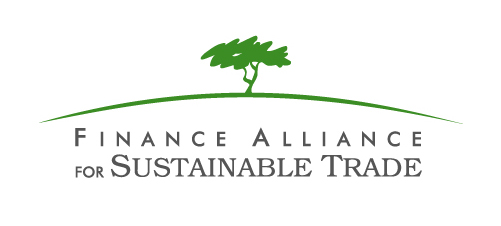WWF: Responsible forest finance can help stop climate change
Published 10-23-09
Submitted by Finance Alliance for Sustainable Trade
Failure by the world's financial leaders to support responsible forest finance will allow rampant deforestation to continue and contribute to the disastrous effects of climate change.
WWF's Global Forest & Trade Network (GFTN) and the Finance Alliance for Sustainable Trade (FAST) on Thursday asked global financial institutions to take a leading role in stopping climate change during the XIIIth World Forestry Congress, taking place this week in Buenos Aires, Argentina.
WWF's GFTN also announced that it will launch Investment Screening Guidelines for Financial Investors in coming months to encourage support for responsible forest finance.
This innovative resource will identify key environmental and social principles and criteria that need to be considered in all investment decisions pertaining to the forest sector, such as timber, pulp and paper, and other sectors whose activities impact forests, including palm oil cultivation and mining.
"For WWF, the flipside of encouraging investment in good forestry is discouraging banks from financing unsustainable operation," said Rodney Taylor, WWF International’s Forest Director.
Taylor also said this tool can help the financial community differentiate between good and bad forestry practices.
In addition, financial leaders must recognize the monetary value of natural standing forests, WWF said.
"Financial institutions must recognize the business opportunities in the responsible forestry sector," said Noemi Perez, FAST's Executive Director. "FAST is working together with the GFTN to link like-minded financial institutions with responsible producers, creating investments that are not only sound for business, but also contribute to the conservation of the world’s forests."
Though investors see a huge potential in a forest carbon market - as recently identified in WWF's 2009 Forest Carbon Investor Survey - recent studies by the GFTN have identified an wariness by financiers to invest in forestry because they believe it involves too much risk and volatility. Studies also showed that investors thought the forest sector lacks suitable collateral from small- to medium-sized businesses.
As a result, there is limited access to money to finance the efforts of responsible forest producers. For example, 69 per cent of responsible forest producers surveyed felt that it was difficult to secure adequate financing, particularly in South America where companies heavily rely on informal investment sources.
To bridge this divide between the needs of responsible producers and the lack of financial capital for this sector, GFTN and FAST, together with the Forest Stewardship Council and the International Finance Corporation co-hosted a special meeting at the Congress.
Responsible forest finance is the support by financial institutions for sustainable business practices in the forest sector.
To learn more about the Investment Screening Guidelines for Financial Investors, please visit gftn.panda.org/responsiblefinance.
About the Finance Alliance for Sustainable Trade
Launched in 2007, FAST is a member driven, non-profit organization. Its 142 members in 26 countries include sustainable small and medium enterprises, commercial and socially oriented lenders, development focused non-governmental organizations, and others involved sustainable trade. FAST's mission is to facilitate a global collaborative effort among its members to ensure continued growth of the sustainable trade sector. FAST works to ensure continued growth of sustainable production and trade by improving access and availability of affordable finance to sustainable producers in developing nations. For more information, please visit http://www.fastinternational.org.
About the Global Forest & Trade Network
GFTN is WWF's initiative to eliminate illegal logging and drive improvements in forest management while transforming the global marketplace into a force for saving the world's valuable and threatened forests. By facilitating trade links between companies committed to responsible forestry, the GFTN creates market conditions that help conserve forests while providing economic and social benefits for the businesses and people that depend on them. A growing network, GFTN is comprised of over 295 companies from across the forest products industry. Trading by GFTN Participants represents 16 per cent of every forest product bought or sold internationally, with combined annual sales of US$64 billion. For more information, visit gftn.panda.org.

Finance Alliance for Sustainable Trade
Finance Alliance for Sustainable Trade
An international, member driven, non-profit association, FAST will represent financial institutions and producers dedicated to bringing “sustainably produced products†to market. Members include commercial lenders, socially oriented and alternative lending institutions, sustainable SME producer organisations, development focused institutions and others in the agricultural commodities supply chain who have made explicit commitments to promote sustainable production and trading practices within their respective capacities. FAST has brought together a diverse group of stakeholders for the first time, who will work collectively to increase the number of producers in developing nations who can successfully access quality trade finance, tailored to their business needs, as they enter sustainable markets.
More from Finance Alliance for Sustainable Trade

